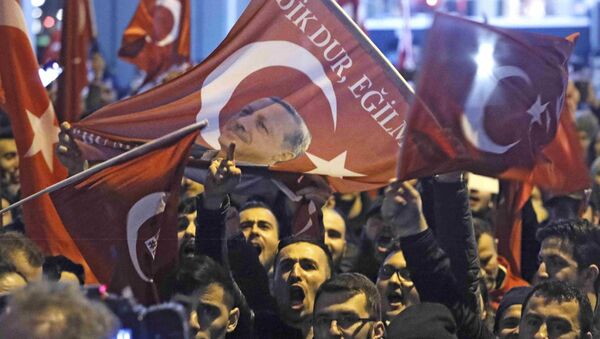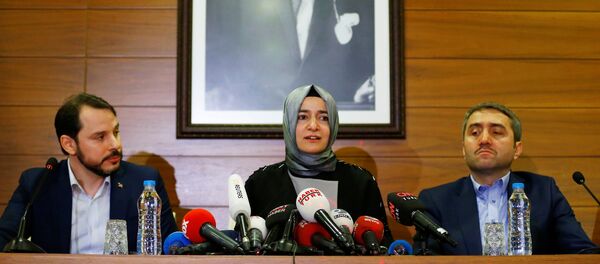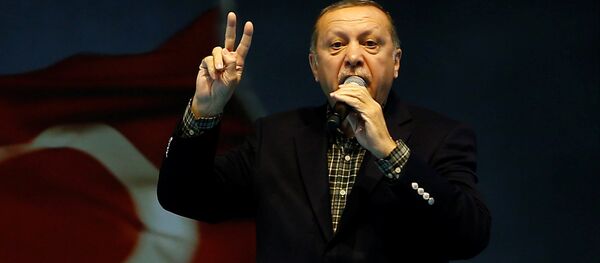The already complicated relationship between Turkey and Europe has become increasingly tense over the weekend after two senior Turkish officials, including Foreign Minister Mevlut Cavusoglu and Family Minister Fatma Betul Sayan Kaya were not allowed to address Turkish voters in the Netherlands. The incident elicited a tough response from Ankara, with Erdogan accusing the Dutch of being "cowards, remnants of Nazis" and "fascists." For his part, Cavusoglu referred to the Netherlands as the "capital of fascism."
Turkish Prime Minister Binali Yildirim pledged that Turkey will not let the incident pass unnoticed. "We protested that situation heavily and we told our Dutch counterparts that we will respond in the heaviest way," he said in a statement.
In addition, Denmark's Prime Minister Lars Lokke Rasmussen announced that a planned meeting with Yildirim was postponed due to Ankara's row with Amsterdam.
However, Ilshat Sayetov, a researcher at the Institute of Oriental Studies of the Russian Academy of Sciences, told RBC that Turkey and the Netherlands are interested in maintaining tensions since both countries will hold key votes in the near future. The Dutch general elections will take place on March 15, with Prime Minster Mark Rutte's People's Party for Freedom and Democracy facing competition from the right-wing Party for Freedom, led by Geert Wilders.
"Ankara is undoubtedly fueling the escalation, but the Dutch have played along," Sayetov said.
These incidents have prompted Ankara to suggest that European nations have joined efforts to undermine the referendum. Azhdar Kurtov, the editor-in-chief of the "National Strategy Issues" magazine, echoed these sentiments, saying that the activities by the European states appear to have been coordinated.
"Germany, the Netherlands and other countries could have told Turkey beforehand that they are opposed to Ankara campaigning. They did not do that. I think that this is a concerted effort aimed at ruffling Turkey's feathers. European leaders had clearly understood how Erdogan would react, but they still deliberately created obstacles in the way of Turkish officials," he told RT. "Europeans acted underhandedly. They changed venues or cancelled meetings, avoiding formal bans. It's only natural that Ankara's response was tough."
However, in Kurtov's opinion, these incidents will not have major implications since both sides are "too interconnected." Europe needs access to Turkey's market, while the European Union and Germany in particular rely heavily on Ankara when it comes to security, he explained.
"Without Turkey's assistance the Middle Eastern crisis will not be resolved and Europe will continue to be plagued by migration and terrorism," he said.
Never miss a story again — sign up to our Telegram channel and we'll keep you up to speed!



